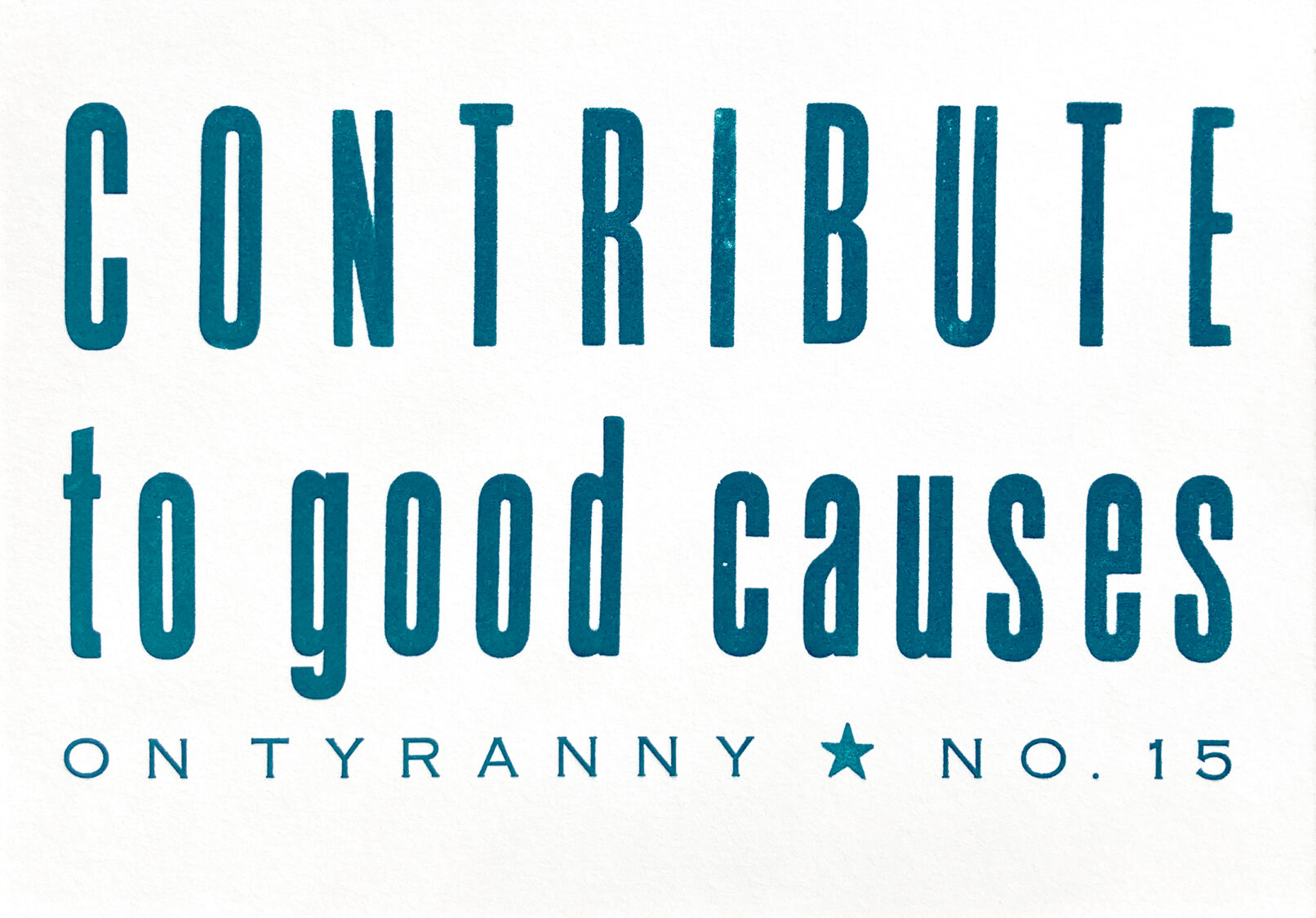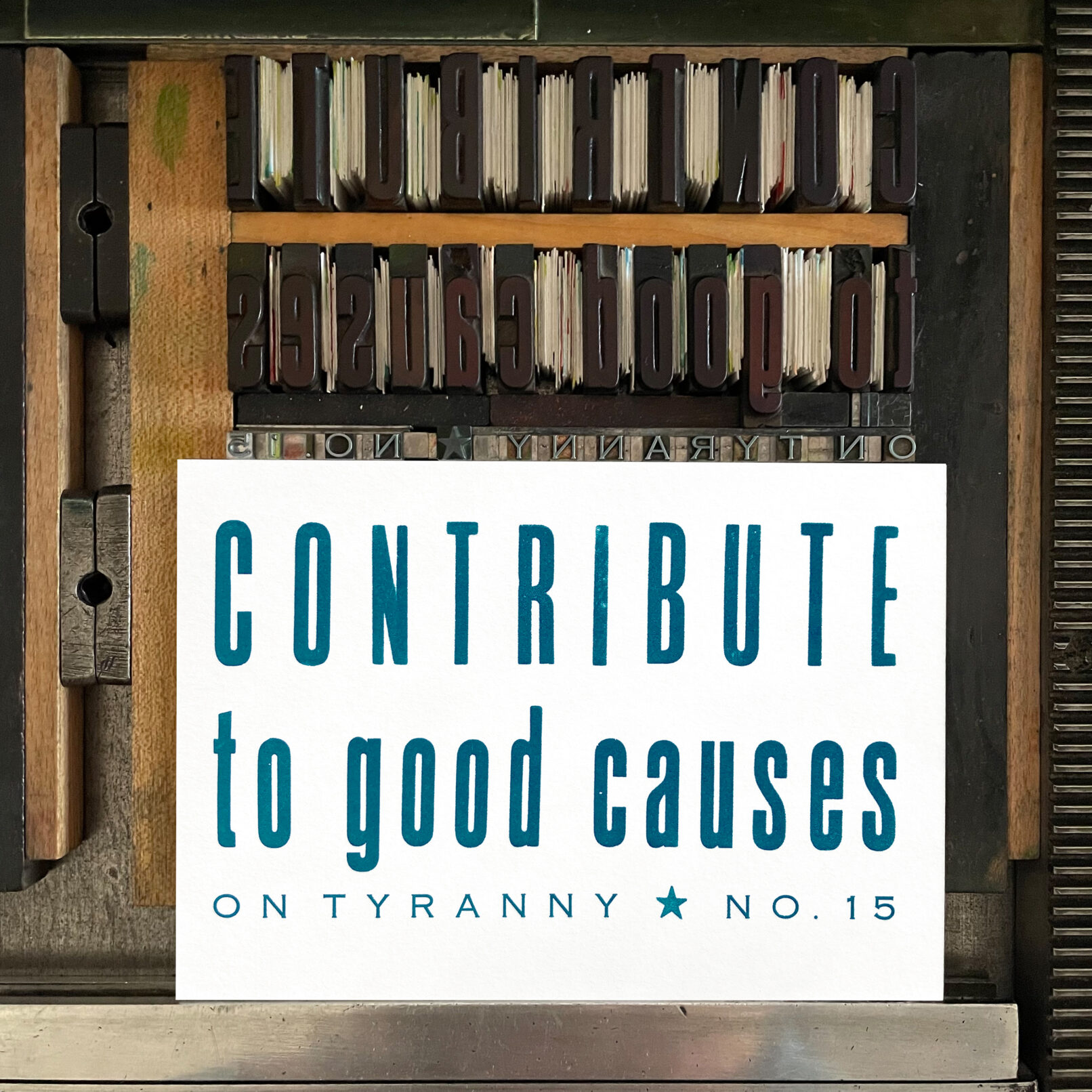“Be active in organizations, political or not, that express your own view of life. Pick a charity or two and set up autopay. Then you will have made a free choice that supports civil society and helps others to do good.”
Timothy Snyder, On Tyranny
Here is a very practical step to take in the fight against tyranny. It requires figuring out who or what you want to support and how much money or time you are able to contribute, most likely on a monthly or yearly basis. Whether it’s abortion access or independent journalism–or any of a myriad of other issues affecting us today–our efforts combine and help to create the world we want to live in.
Over the years we’ve taken this lesson to heart. Each year, we review our contributions from the last year, look at our financial situations, and determine if we want or need to adjust our contributions. By establishing a budget for regular contributions, we’ve removed the initial barrier around whether we contribute or not. The default is that we will. Of course, “contribut[ing] to good causes” can take the form of charitable donations, and/or it can take the form of time-based volunteering or the offer of services, either free or at a reduced cost, to those who might not otherwise be able to access them. Ultimately, there are many ways to contribute to good causes, and the point is to look beyond our own immediate needs toward the larger picture and the society we are a part of.
In fact, the idea of a civil society and our participation in it is a concept Snyder threads throughout On Tyranny. Perhaps because many Americans, including ourselves, have stopped attending weekly religious services, the idea of a group of like-minded civil servants, working toward a greater good, can be appealing. In addition, Snyder writes that “the capacity for trust and learning [in a group setting] can make life seem less chaotic and mysterious, and democratic politics more plausible and attractive (94).” When we become a member of a group, we expand our understanding of and with others. Working to share knowledge and make decisions as a group reveals a diversity of worldviews and experiences, and it reminds us that even if we don’t come from the same background, a common interest can allow us to build a civil discourse and show how democracy can work on a larger scale.
No matter what the popular narrative may be, none of us is an island: we all benefit, in certain ways (and some more than others), from the society in which we live. If we want to have a society that works for everyone, we must all contribute in whatever ways we can.
Hear Timothy Snyder speak about this lesson on YouTube.
This lesson was letterpress printed with handset wood type and Pantone 313 ink on a Vandercook proofing press.

